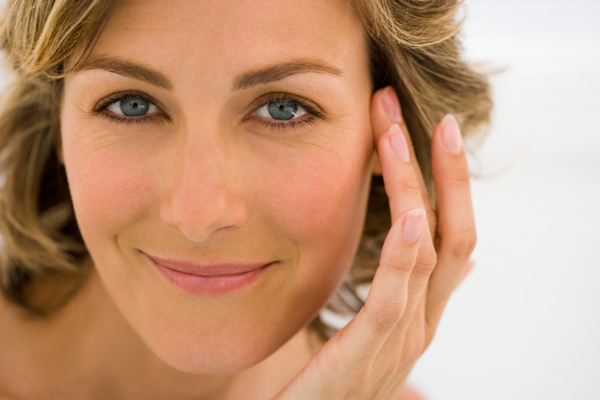Living in Australia, we are so fortunate with amazing summers! However, spending lots of time in the sun puts you at a greater risk of skin cancers.
Who is at risk of skin cancer?
Anyone exposures to the sun is at risk of skin cancers, but certain groups can be at a higher risk. These include:
-
Fair skinned individuals
-
Individuals with red hair
-
Individuals with lots of moles (naevi)
-
Skin types 1-3 (follow this link to determine your Fitzpatrick Skin Type: http://www.arpansa.gov.au/pubs/RadiationProtection/FitzpatrickSkinType.pdf)
-
Personal medical history of melanoma or other skin cancers
-
Family history of skin cancers, especially melanoma
-
People who have had lots of sunburn in the past
Why are we worried about skin cancer?
As with any cancer, skin cancers have a risk of spreading around the body, causing significant illness. We know if detected early, the prognosis for skin cancer is usually better than if diagnosed after having spread around the body (Cancer Council Australia).
According to the Cancer Council of Australia,, currently the five-year relative survival rate for melanoma is 88% for men and 93% for women, and the five-year relative survival rate for non-melanoma skin cancer is 68% for men and 74% for women in Australia.
The best approach with skin cancers is prevention and early recognition.
What can I do to prevent skin cancer?
The majority of skin cancers are caused by sun exposure, so following the tips below can help to reduce risks:
-
Slip on sun-protective clothing which covers as much skin as possible
-
Slop on some SPF 30+ sunscreen, 20 minutes prior to sun exposure and remember to reapply every 2 hours
-
Slap on a hat to protect your face, ears and neck
-
Seek shade
-
Slide on some sunglasses – make sure they meet Australian standards for maximum protection
-
Check your skin regularly and see your GP for a skin check (follow this link for tips on how to check for signs of skin cancer: http://www.cancer.org.au/preventing-cancer/sun-protection/check-for-signs-of-skin-cancer.html)
Remember to check the UV index on the Cancer Council website and plan your outside activities to avoid the middle of the day – this is when your risk of sun damage is highest! Remember, sunscreen should never be used to extend the time you spend in the sun (Cancer Council Australia).
What is a skin check?
Skin checks are a thorough examination of your body by yourself or your GP. Some clinics offer photographic skin checks and can monitor for changes in any skin lesions. It is important to know your own skin and mention any changes that you are concerned about to your GP.
What next?
Have a chat to your GP, where they can further assess your skin type, risk factors and recommend how often you should have a skin check. If you notice any spots on your skin that you are concerned about, we suggest that you see your GP for further assessment.
Disclaimer: The links provided are for information proposes only. We take no responsibility for the content of these websites.
References
Cancer Council Australia 2017, Skin Cancer, Cancer Council Australia, retrieved online 9/4/17, http://www.cancer.org.au/about-cancer/types-of-cancer/skin-cancer.html
Cancer Council Australia 2017, Check for signs of skin cancer, Cancer Council Australia, retrieved online 9/4/17, http://www.cancer.org.au/preventing-cancer/sun-protection/check-for-signs-of-skin-cancer.html
Sinclair R 2012, ‘Skin Checks’, Australian Family Physician, vol. 41, no.7, pp. 464-469, retrieved online 9/4/17, http://www.racgp.org.au/afp/2012/july/skin-checks/
Medical information disclaimer:
No advice: Our website contains general medical information. The medical information is not advice and should not be treated as such.
No warranties: The medical information on our website is provided without any representations or warranties, express or implied. Without limiting the scope above, we do not warrant or represent that the medical information on this website: will be constantly available, or available at all; or is true, accurate, complete, current or non-misleading.
Medical assistance: You must not rely on the information on our website as an alternative to medical advice from your doctor or other professional healthcare provider. If you have any specific questions about any medical matter, you should consult your doctor or other professional healthcare provider. If you think you may be suffering from any medical condition, you should seek immediate medical attention. You should never delay seeking medical advice, disregard medical advice or discontinue medical treatment because of information on our website.
Interactive features: Our website includes interactive features that allow users to communicate with us. You acknowledge that, because of the limited nature of communication through our website’s interactive features, any assistance you may receive using any such features is likely to be incomplete and may even be misleading. Any assistance you may receive using any our website’s interactive features does not constitute specific advice and accordingly should not be relied upon without further independent confirmation.
Limits upon exclusions of liability: Nothing in this disclaimer will: limit or exclude any liability for death or personal injury resulting from negligence; limit or exclude any liability for fraud or fraudulent misrepresentation; limit any liabilities in any way that is not permitted under applicable law; or exclude any liabilities that may not be excluded under applicable law.
Credit:This document was created using a template from SEQ Legal (http://www.seqlegal.com).

